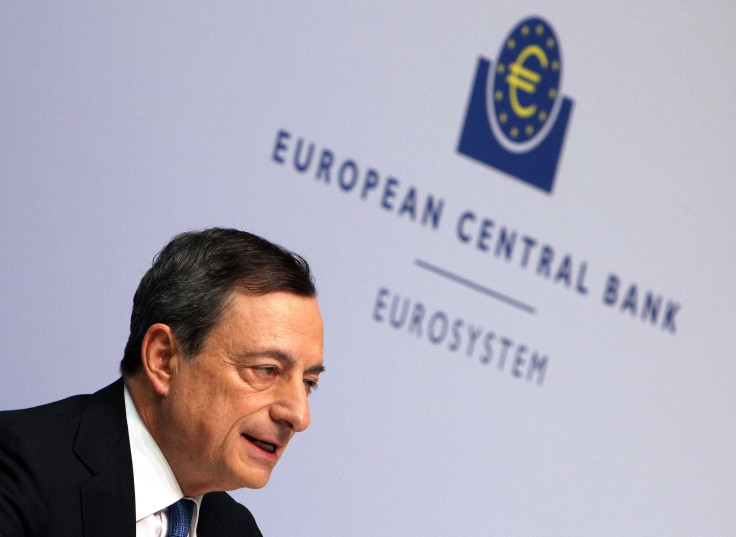Eurozone Will Spend Nearly $70B A Month To Fight Deflation, European Central Bank President Mario Draghi Announced

The European Central Bank announced Thursday a 60 billion-euro-a-month economic stimulus program ($69.7 billion) through September 2016 aimed at spurring growth and averting deflation -- that is, prices falling so quickly that spending and investment come to a virtual halt. The announcement immediately sent the euro down 0.5 percent to $1.1555, which means currency traders welcomed the news as a good measure toward fighting the persistent low inflation by weakening the euro, which would promote exports.
In theory, quantitative easing has a stimulative effect on stagnant economies. As a central bank buys government bonds, it lowers interest rates, encouraging businesses to borrow and invest in growth. The ensuing monetary injection flows to consumers’ pockets -- and generally circulates throughout the economy. Three rounds of quantitative easing -- or QE -- helped the U.S. recover from the Great Recession. The U.S. Federal Reserve ended its final QE infusion last fall.
“In March 2015 the Eurosystem will start to purchase euro-denominated investment-grade securities issued by euro area governments and agencies and European institutions in the secondary market,” ECB President Mario Draghi said at a press conference in Brussels. If the ECB buys these securities from March until September 2016 at 60 billion euros a month, the cost will come to $1.14 trillion euros ($1.32 trillion at current dollar valuation) in public debt.
The euro just fell off a cliff after @ecb President Mario Draghi announced EU60b/month of asset purchases. pic.twitter.com/2kvpuP0HAv
— Alex Webb (@atbwebb) January 22, 2015© Copyright IBTimes 2024. All rights reserved.





















